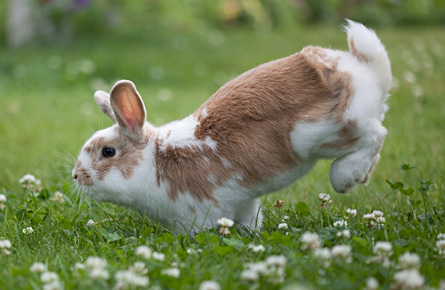In male dogs, both testes are removed; this is known as ‘castration’. In female dogs, either the uterus is removed or both the uterus and the ovaries; this is known as ‘spaying’.
A female dog that has been spayed is no longer able to reproduce and will not go into her breeding season. However, for most breeds, it is advised to spay females before their season, or "pre-season." Although females can be sterilised as early as six months of age. If your dog is older than six months or has started going through seasons, we will need to wait three months after a season to be sure we are working at the best time.
 Dog Neutering:
Dog Neutering:
-
Prevents unwanted pregnancies and womb infections
-
Can help prevent tumours and breast cancer
-
Can also help prevent testicular cancer and prostate disease
-
Assists in preventing roaming and aggressive behaviour
-
It’s normal to neuter! 71% of owned dogs in the UK are neutered*
*PSDA Paws report 2020
At what age are dogs neutered?
In order to lower the chance that female dogs would acquire mammary cancer, dog neutering is typically performed at approximately six months of age for male dogs and pre-season for female dogs. Based on the most recent data, we would also take into account your dog's breed, size, general behaviour, and other risk factors to make the best recommendation for your dog.
Although male canines beyond the age of six months can be neutered at any time, we would still discuss the surgery with the owner and take into account the dog's breed, size, general temperament, and other risk factors.
We would delay three months following the season if your dog is not spayed before to her first one.
Should I let my dog have one litter before spaying her?
It's an often asked issue, but there are no established health advantages to allowing your dog to have a litter; the same goes for cats and rabbits.
General anaesthesia
For the neutering surgery, your pet needs to be given a general anaesthesia; at Boundary Vets, we have safety precautions in place to make sure they are safe throughout. Throughout the procedure and the healing period, your pet will be closely observed by a committed Registered Veterinary Nurse (RVN). All anaesthetic carries some danger, but it's quite small—especially for neutering, as pets are usually young, in good health, and undergoing this treatment.
Pets that have underlying medical conditions, are older or of a different breed, or both may be more susceptible to anaesthesia. Before your pet has surgery, we can do a pre-anaesthetic blood test to rule out any underlying medical conditions. This can be discussed on the day of the procedure as well as before arranging it. Your pet will receive two distinct methods of pain treatment in addition to a premedication to aid in relaxation. You can be sure that the professionals at Boundary Vets will always be there to support your pet.
Your Dog will stay the day with us
Please make sure your dog is wearing a safe harness or lead on the day of the dog neutering surgery. We will go over the permission form and process during the admission visit. Please be aware that the consent form needs to be signed by the registered owner (who must be above 18) or an authorised agent. When our team is satisfied with your dog's recovery, they will admit them as "day patients" and release them later that same day.
The staff will go over all the information you require on your pet's post-operative care and pain medication during your pet's discharge appointment. Please call us at 01235 538721 if you have any more queries after getting your pet settled back at home. We are always available to you and your pet
Pet Health for Life Plan Offer
Members of the Boundary Vets Pet Health for Life plan are eligible for a 10% reduction on neutering operations. You could be able to reduce your annual pet care expenses by taking advantage of our health club's preventative health services.







